Research from Cigna International Markets suggests that working parents have shown greater positivity and resilience than most in the face of the pandemic.

The demands on working parents during the pandemic were extraordinary — with many performing their jobs while juggling homeschooling and childcare, with little time left for themselves. However, new research from Cigna International Markets suggests that working parents have shown greater positivity and resilience than most in the face of the pandemic.
This surprising discovery was just one of the findings from the latest Cigna 360 Well-Being Survey. This annual global survey measures perceptions of personal health and well-being based on five categories or indices — family, financial, physical, social and work. The 2021 report includes additional topics that have risen in importance during the pandemic, including virtual health, whole health, resilience and working from home. The research is based on responses from 18,000 people, spanning 21 countries and five continents.

Cigna 360 Well-being Survey
Read the latest report to understand how people across the world have managed their health and adapted to the changes over the past year.
Below we take a look at some of the most interesting findings.
Enhanced Family Time Drives Positivity, Resilience and Well-being
Remarkably, working parents have shown more consistent positivity and greater resilience than other groups in the study (51% of working parents with children age 0 to 5 claim to be highly resilient vs. 39% for all respondents). They even reported higher scores across all well-being indices than many other groups. While these parents did report high levels of stress during the pandemic, lockdowns and self-quarantines also enabled them to enjoy an unprecedented amount of time with their children.
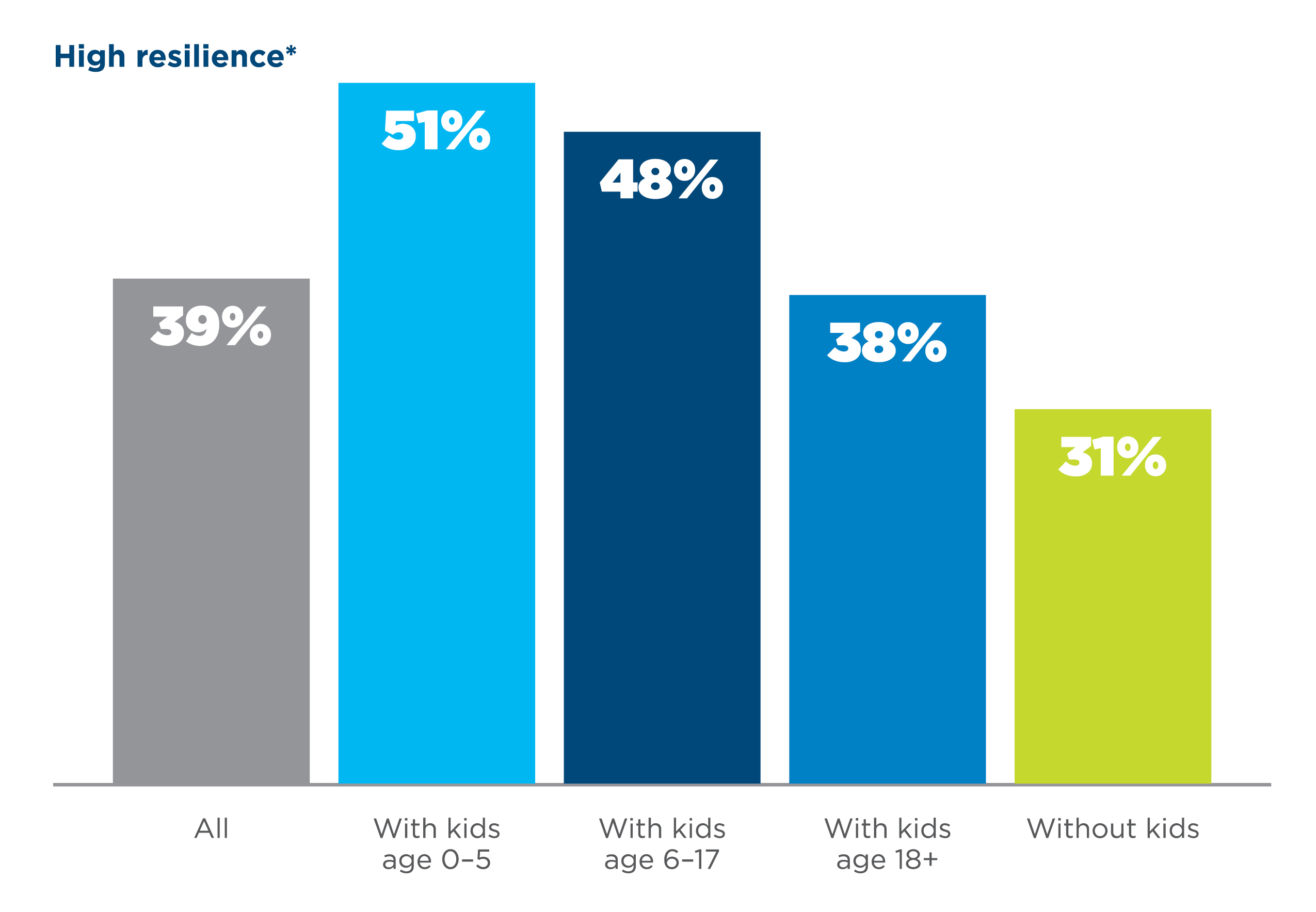
Resilience and Working Parents
- 51% of working parents with children age 0-5 are highly resilient vs. 39% for all respondents
- Working parents with younger children (age under 18) reported the highest well-being score of 66.2 and are the most consistently positive group throughout the study, across almost all elements of the five indices

Connection to Family and Community is Key to Higher Resilience
Resilience, or the ability to quickly recover from challenges, is closely connected to the people and communities that surround us, from family to school environments to the workplace.
The COVID-19 pandemic put strain on almost every personal and professional relationship in our lives. With lockdowns, travel restrictions and social distancing around the world, more people have become more isolated than ever. Those who fared best globally were those able to maintain human connections despite separation and quarantine. As we continue to navigate the pandemic, the value of these connections has never been more important.

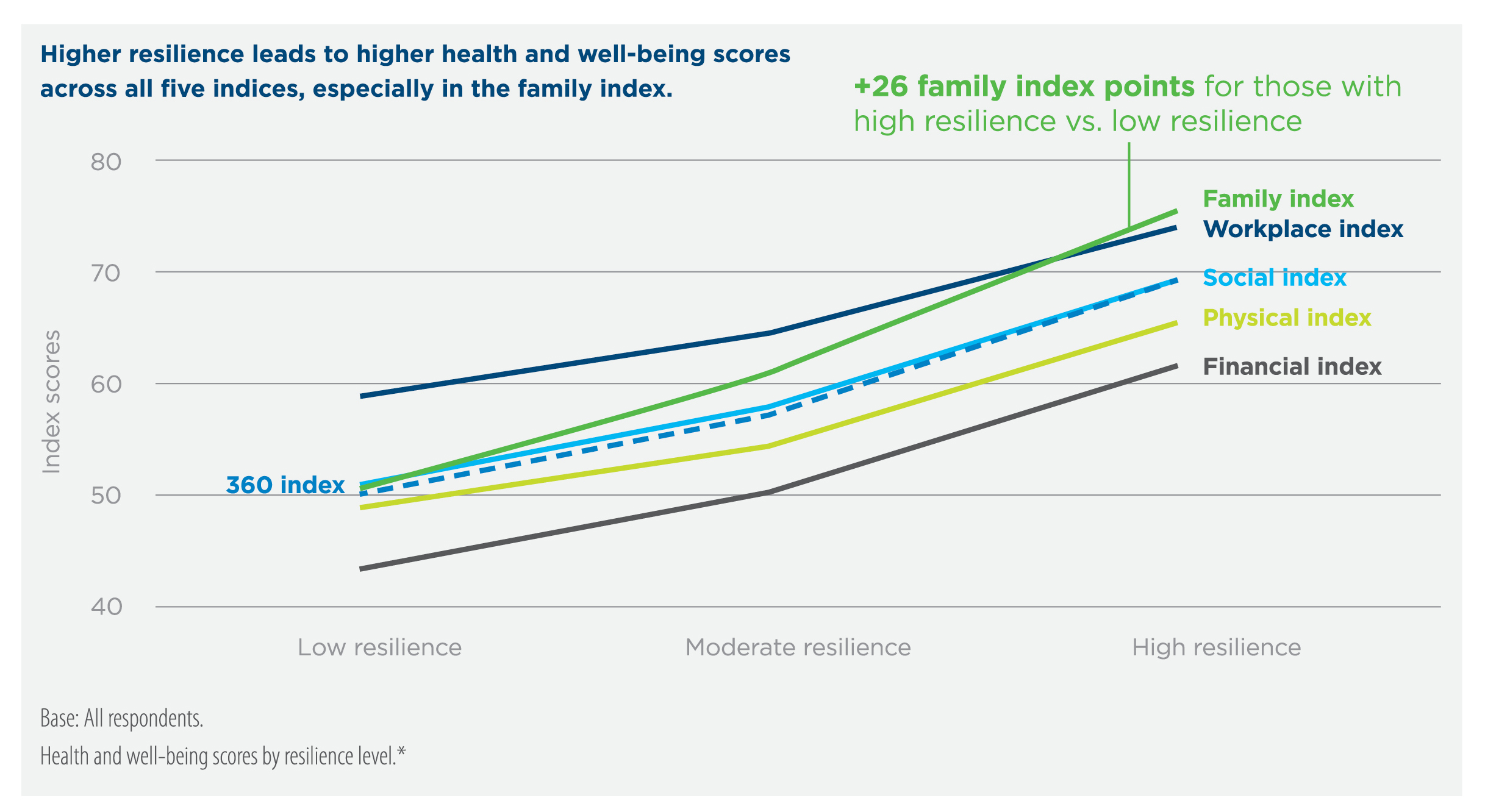
While Stress May be Inevitable, Resilience Softens the Impact
The Cigna 360 study found that those with weaker family and community connections are almost four times more likely to suffer from unmanageable stress than those with strong social bonds. While these relationships would not eliminate stress altogether, the higher levels of resilience help cushion the impact on well-being scores when stress is on the rise. Out of the five well-being indices measured, the stress-mitigating effect was particularly strong for the family index, followed by the social index.
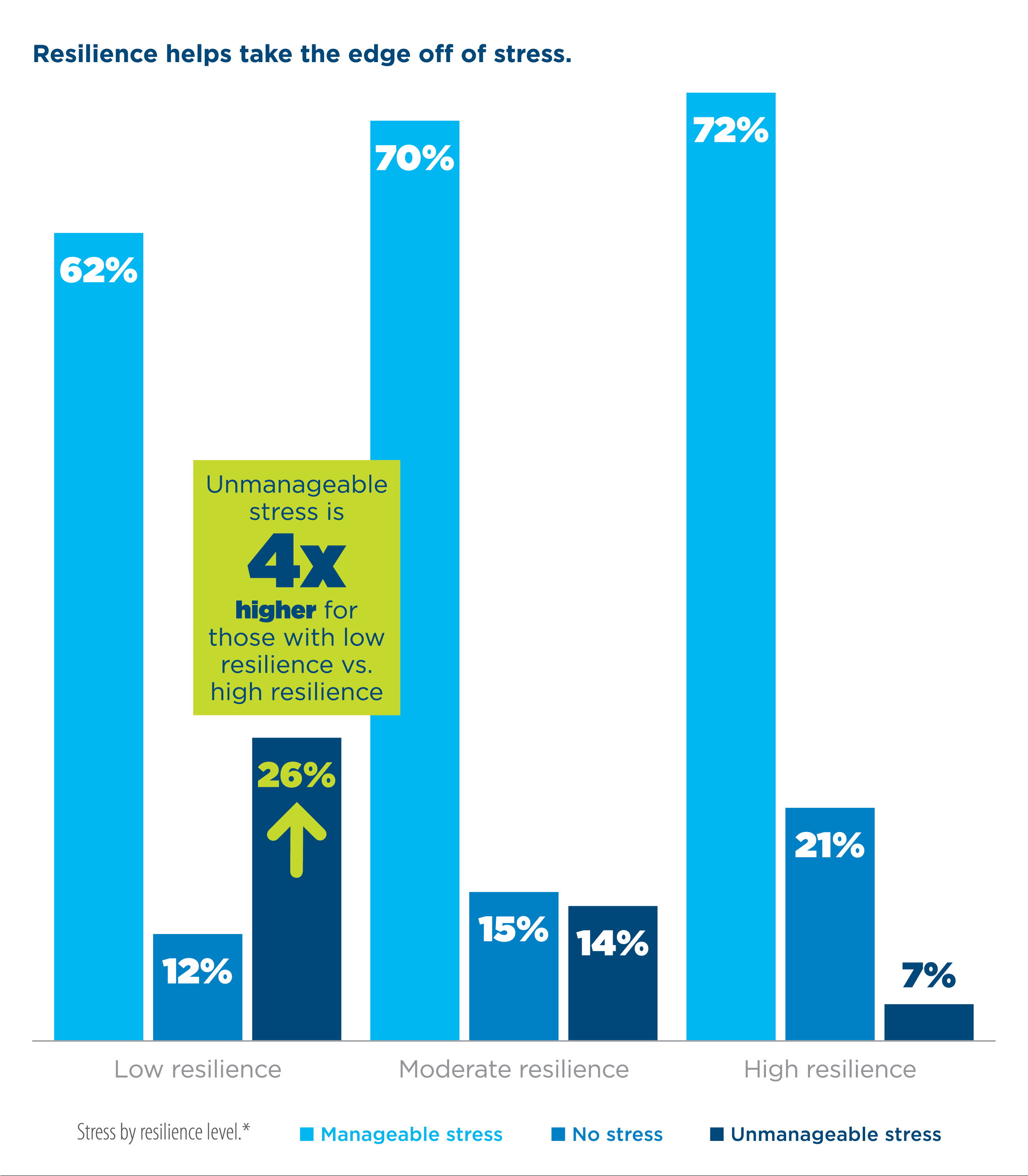
The family and social indices showed the greatest uplift in health and well-being scores with higher resilience across all stress levels.
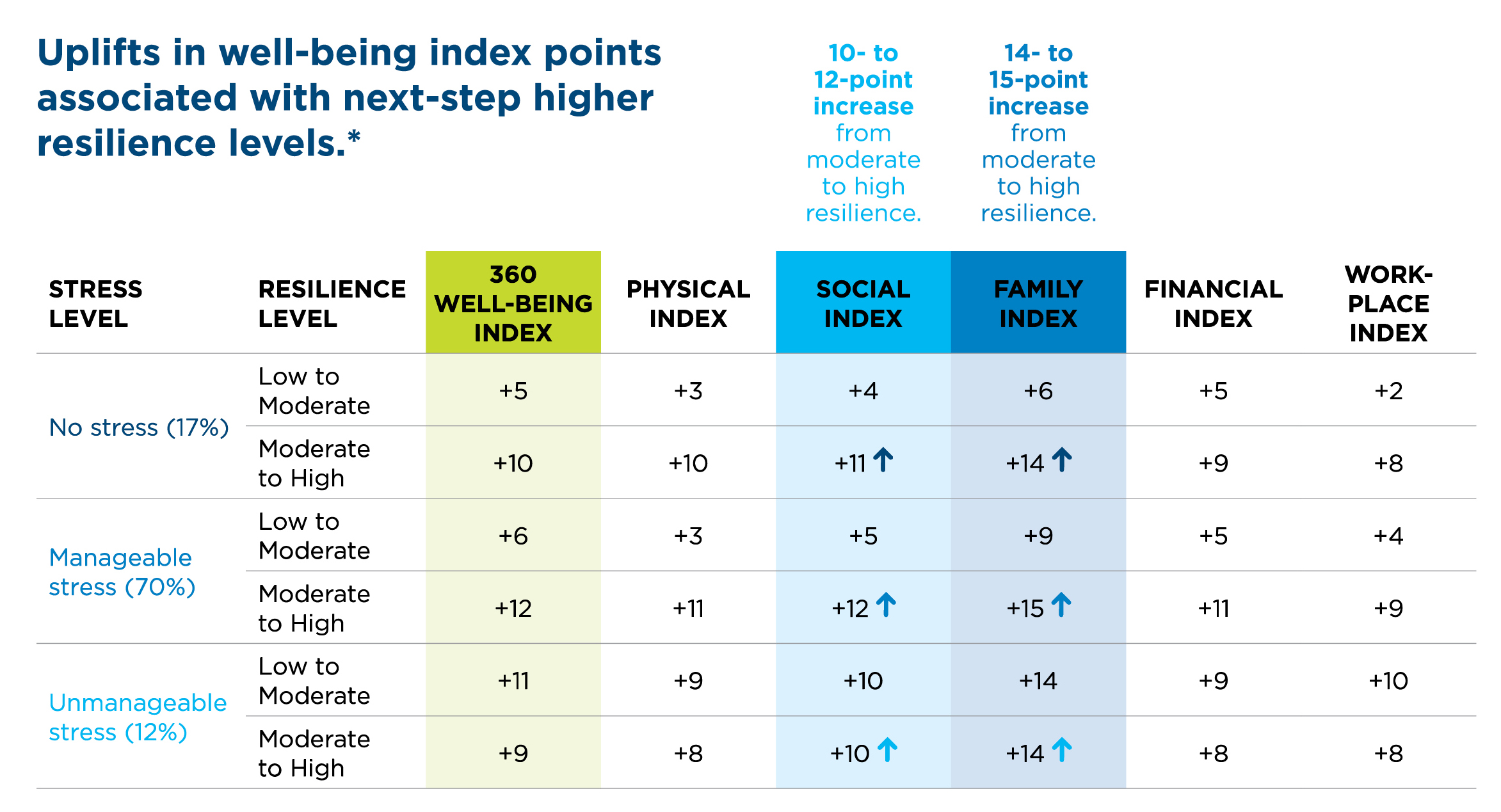
Fostering Greater Connections and Resilience at Work
As employers continue to examine workforce strategies, they should consider the renewed cultural emphasis and employee desire for flexibility and family time. More than two-thirds of survey respondents reported a preference to work from home at least part of the time, with 26% of them citing the greater connection with family and friends as one of the key benefits of remote working. Given the positive impact of family connections on increasing resilience and decreasing levels of stress, allowing greater flexibility for workers can help businesses maintain a more healthy and productive workforce.
However, one of the most common complaints of working from home was having less effective communication with colleagues. Employers have an opportunity to improve connectivity among remote and hybrid workers. Even something as simple as regular check-ins can make a big difference, and virtual workforce activities can help strengthen employee relationships and sense of belonging.
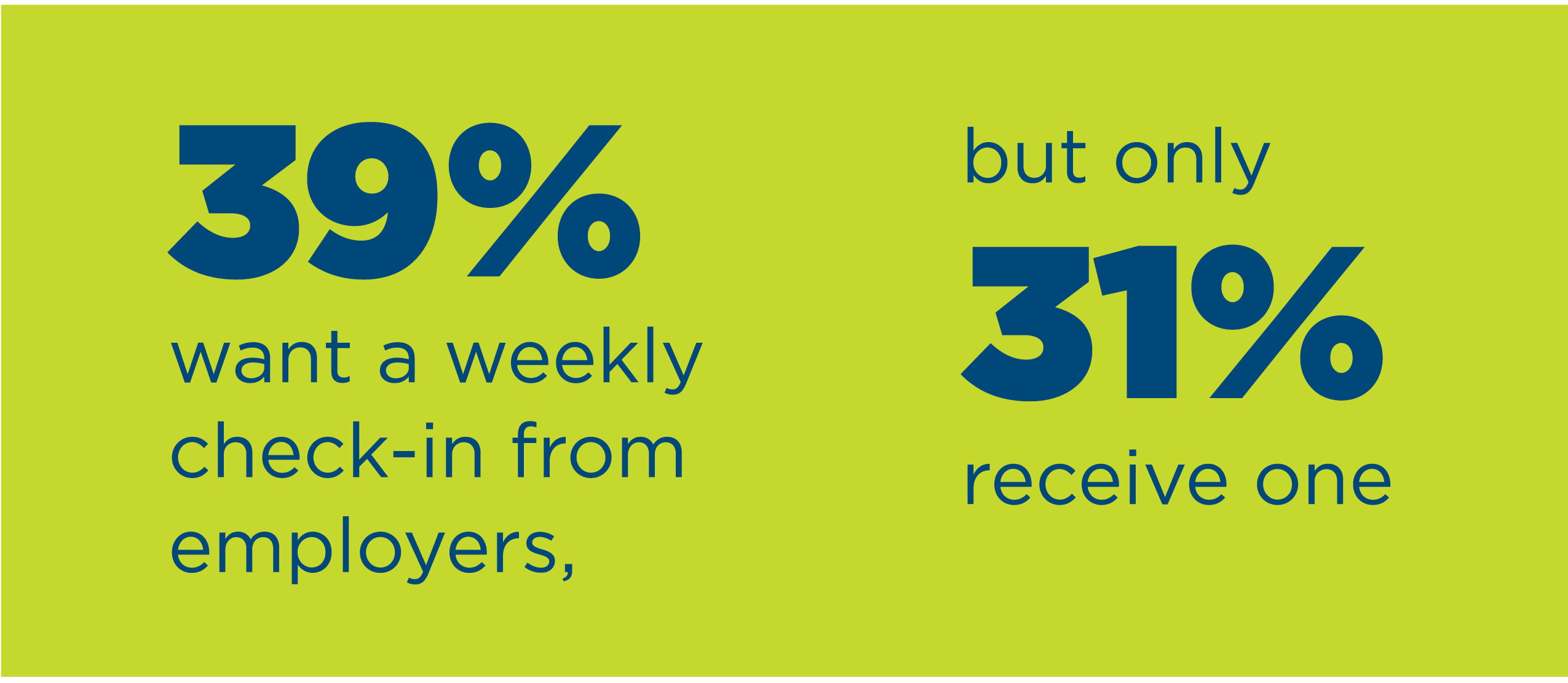

Building Greater Resilience in America
Employers can help strengthen workforce resiliency by providing an array of support resources that are meaningful to their diverse employee population.